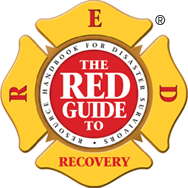Recovery
The welfare and safety of citizens is never more threatened than during disasters. The goal of the County of San Diego Office of Emergency Services is to ensure that mitigation, preparedness, response, and recovery actions exist so that the public welfare and safety is preserved. Emergency Services maintains plans to provide a comprehensive framework for countywide recovery operations. It addresses the roles and responsibilities of government organizations and provides a link to local, state, federal and private organizations and resources that may be activated to address disaster recovery in San Diego County. This plan will continue to evolve as lessons are learned from actual disaster and emergency experiences, through ongoing planning efforts, training and exercise activities, and with federal guidance.
Jan. 22, 2024 Flood Recovery Information
County and Cities Transition Flood Residents to Long-Term Housing Options
Financial Investment Posted Tuesday, June 26, 2024
Final Emergency Temporary Lodging Program Report posted Tuesday, June 25, 2024
Contacts for Local Housing Authorities
Residents looking for support from flood related damage to their homes can contact the following organizations:
- San Diego Housing Commission: 619-578-7792, flood assistance.sdhc.org, email - floodrecovery@sdhc.org
- National City Housing Commission: 619-743-6420, email - housing@nationalcityca.gov
- County of San Diego Housing and Community Development Services: 858-694-4801, email- tsp.hhsa@sdcounty.ca.gov
Volunteer Assistance Is Available
Volunteer Organizations Active in Disaster (VOAD) can help connect San Diegans with volunteer groups working in their communities.
Volunteer assistance is available for:
-
Muck out and cleanup of flooded homes.
-
Help with mold suppression.
-
Connection to food and resources.
-
Connection to support services, health services, and spiritual and mental health care needs.
-
Help replacing some home items like appliances, furniture, mattresses, etc.
To connect with a volunteer, call 619-673-8780 or fill out an online form. Your information will remain confidential. Volunteer organizations do not check immigration status.
Agreeing to talk to nonprofits VOAD about assistance creates no obligations. All support is free.
Rebuilding
For repairs that require building permits, unincorporated area residents are required to submit a permit application. Fees are waived for flooding victims. For information call 619-380-3055 or email PDSBuildingPermitCounter@sdcounty.ca.gov. If you live in a city, contact your city’s planning department.
To find a reputable contractor, visit the Department of Consumer Affairs’ Contractors State License Board webpage. You can file a complaint with the Contractors State Licensing Board by calling 800-321-2752 or online.
Food
For emergency food resources, reach out to one of the following organizations:
-
Meals on Wheels: 619-260-6110
-
San Diego Food Bank: 1-866-350-FOOD (3663)
-
Feeding San Diego: 858-452-3663
-
2-1-1 San Diego: 2-1-1
Food Assistance (CalFresh) or Temporary Cash Assistance (CalWORKs or General Relief): go to benefitscal.com, call the Access Customer Service Center at 866-262-9881 or visit a local Family Resource Center.
Clothing
Salvation Army: Call 619-231-6000 if you need clothing, socks, underwear or hygiene products.
Health
If you do not have a doctor or medical provider and need
care: Call 2-1-1 to get connected
with a provider nearest you.
If you need help finding mental health resources or crisis support: Call 9-8-8. For emergencies, please dial 9-1-1.
Mental Health Resources:
Mental Health Resources Available
Help is available for those affected by the January storms who are struggling with their mental health.
If you are experiencing a mental health emergency, call 911 for immediate assistance.
Call 988 or 888-724-7240 to connect to the San Diego Access and Crisis Line (ACL) if you need assistance finding and navigating mental health services. The ACL is a free and confidential option to help connect you to resources and referrals and can provide crisis intervention and support over the phone as well as dispatch crisis response services if appropriate.
Counseling is available to people in the County’s Emergency Temporary Lodging Program. The County contracted with Open Heart Leaders to offer individual and group therapy for program participants. Call 858-256-6736 or visit Open Heart Leaders for more information.
San Diego County Behavioral Health Services (BHS) can help connect you to resources to support your mental wellness. To learn more about all available BHS services and resources, click here.
Utilities
San Diego Gas & Electric: Customers who were impacted by the storm can visit the SDG&E Storm Recovery page or call their Customer Care Center at 1-800-411-7343.
Other
resources
Home/Business Property Tax Relief: Visit the Assessor/Recorder/County Clerk's office to see if you qualify for Flood Property Tax Relief or email arcchelp@sdcounty.ca.gov. Recorder/County Clerk staff are also available to answer questions and help with requests for replacement copies of vital records and property deeds.
For people experiencing homelessness, resources may be available. Visit the Housing Services page to learn more about housing services in cities and in the unincorporated areas of the County.
Pet owners: If you live in the unincorporated area, you can get help with supplies or obtain copies of documents by contacting the Department of Animal Services at DASInfo@sdcounty.ca.gov, 619-767-2675 or sddac.com.
Pet owners in other jurisdictions can visit the San Diego Humane Society’s support page or call 619-299-7012 for assistance.
Consumer Protection Resources
Additional Resources
211 San Diego or call 2-1-1 or 800-227-0997 for information and referrals to services.
Federal Emergency
Management Agency (FEMA) Disaster Assistance and Flood
Resources

The Red Guide to Recovery: A Resource Handbook for Disaster Survivors is a comprehensive, easy-to-read post incident recovery tool that walks disaster survivors step-by-step through the recovery process. Disaster survivors are often overwhelmed by stress and uncertainty after a loss caused by a natural or manmade disaster, and the handbook addresses such stress and uncertainty by providing the information and tools survivors need to cope with a disaster. Learn more
